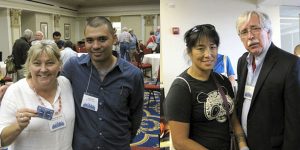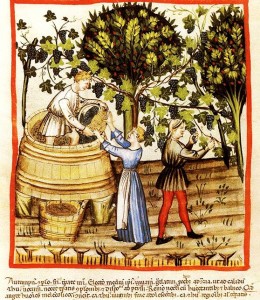We use books every day. But how is a book actually created? How are the pages folded? How are they cut? For a glimpse into making books in the late nineteenth century, take a look at this 1891-92 Dexter Folder Co. trade catalog titled Dexter Book Folding Machines.
Month: October 2014

This post was written by David Edelmann, Smithsonian Environmental Research Center Library intern.
As an intern for the SERC (Smithsonian Environmental Research Center) Library, working under SERC librarian, Sue Zwicker, I was tasked with tackling a review of the Library’s Chesapeakiana Collection. The goals of the project were to:
- Create a bibliographic spreadsheet organizing all of the titles,
- Research each individual title for digital copies on the internet,
- Save and organize any accessible digital media found through research,
- Create a publicly accessible database of the catalogue with links to available digital copies,
- Assess items for scanning if they are not already available in digital format
Pamela O. Long, an independent historian of late medieval and Renaissance history and the history of science and technology, was recently awarded the prestigious MacArthur “genius grant.” The MacArthur Fellowship is an annual award to “talented individuals who have shown extraordinary originality and dedication in their creative pursuits and a marked capacity for self-direction.” Long performed research as a Dibner Library Resident Scholar from February-April 1993. Her research topic was Openness, Secrecy, Authorship, Intellectual Property, and Studies in the Technical, Practical, and Military Traditions of Pre-modern Europe, which led to the published Power, Patronage, and the Authorship of Ars: From Mechanical Know-how to Mechanical Knowledge in the Last Scribal Age (March 1997).
In July 2015, the Smithsonian Libraries will debut an exciting new exhibit in our Exhibition Gallery in the National Museum of American History. “Fantastic Worlds: Science and Fiction, 1780-1910” will explore the relationship between emerging scientific theories and fiction writers of the period. Although the “Fantastic Worlds” is many months away, we’ve recently launched a t-shirt campaign through TFund so that you can own an awesome piece of imagery from the exhibit and support programming for it!
The Movable Book Society 10th Biennial Conference. Philadelphia, Sept 18-20, 2014

This was my very first pop-up book conference and I came away absolutely charged up, inspired and quite proud of our pop-up book collection here at the Cooper-Hewitt Museum Library. I’ve been a member of the Movable Book Society for a number of years, and add the quarterly newsletter, Movable Stationery, to our serial collection, which has been fully digitized and available online. It is indexed on the Movable Book Society website.

Now that the time of harvesting grapes for wine in the Northern Hemisphere is coming to a close, let’s raise an appreciative glass and toast John Adlum, known to a few as the “Father of American Viticulture.” The history of wine making in the United States is involved, to say the least (see Pinney’s magisterial work on the subject*) but it was Adlum who nurtured the first commercially viable vine in this country. And he did so, surprisingly but not incidentally, in the nation’s capital.
